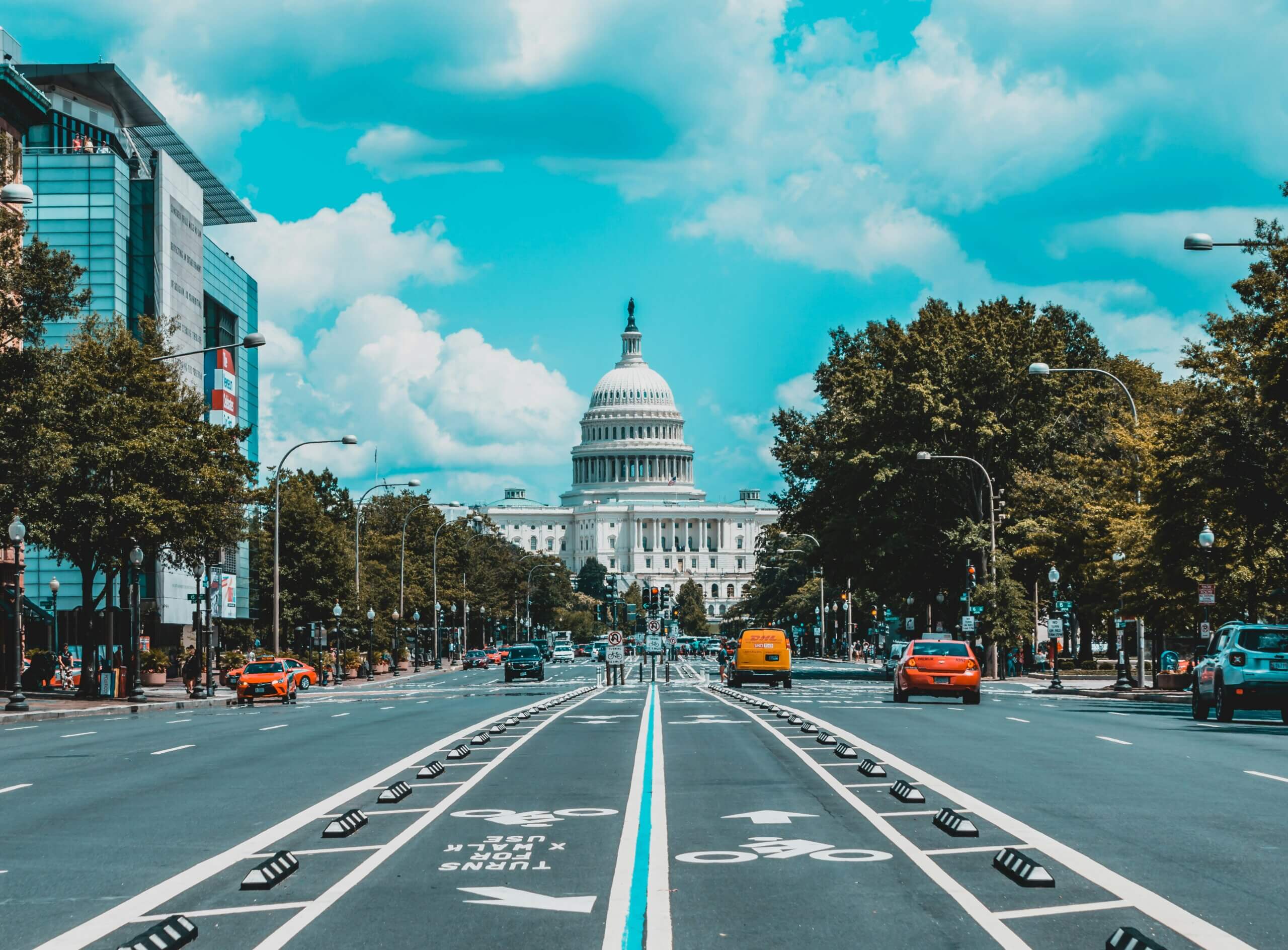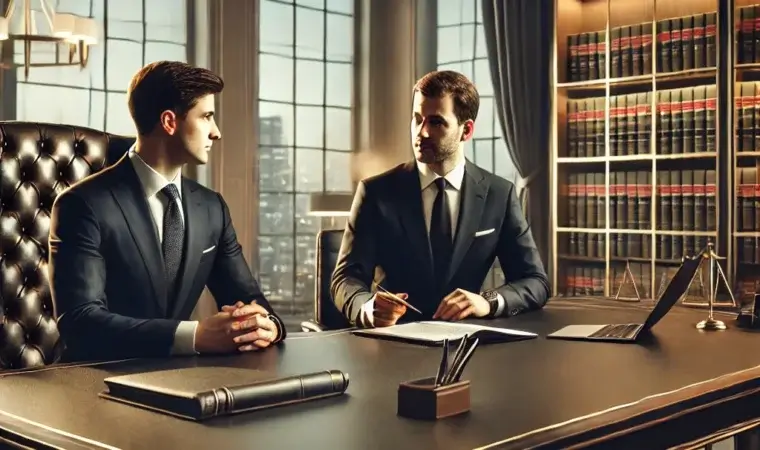A hit-and-run is one of the most serious traffic offenses in DC, to such an extent that it crosses the threshold from civil to criminal. Most acts in a car accident case revolve around negligence and are civil in nature. However, when a driver makes the conscious decision to flee the scene after an accident, that is a criminal act. The law in DC is clear: You must pull over and exchange information after a motor vehicle accident. This is true whether the accident is significant and life-impacting or just a scrape on your own car. The Code of the District of Columbia describes this rule in detail. Under Section 50-2201.05c(a), “Any person who operates or who is in physical control of a vehicle within the District who knows or has reason to believe that his or her vehicle has been in a collision shall immediately stop and…”
What You Must Do After an Accident
The subsection cited above continues by listing additional actions the driver must take beyond stopping. First, you have a legal obligation to call or ask someone else to call for medical assistance, such as paramedics. It should suffice to call 911 and report the situation, rather than just requesting an ambulance. In some instances within this vein, you must stay on the scene to provide identifying information to law enforcement and the injured party. The subsection also addresses instances where an owner of damaged property is not at the scene at the time of the collision. When this happens, do you still have an obligation to report the damage and provide your information? The answer is yes. This is true whether it is an owner of personal property, real property, or even a domestic animal.
Of course, there are instances when you are unsure of the location or identity of the owner. If it is a dog with no collar, who are you to report the accident to? Under Section 50-2201.05c(a)(2), you have a legal obligation to report the accident to law enforcement if you cannot locate the owner. It is our general recommendation that you record your provision of information to the other party if this is your chosen course of action. This way, you can negate any argument or prosecution stating that you never complied with this section of the DC Code. The third element of this subsection is less commonly cited. However, you should still know it in case you are in an accident.
If you are in a collision, and the result of that collision poses a harm to others, you must call or cause another to call 911 and provide identification.
When You Do Not Have to Stop
But there are exceptions when stopping is not necessary. Per § 50-2201.05c (b), if you do not stop, you have options. However, the burden of proof is on you to prove that there was sufficient reason for you not to stop after the accident. The burden of proof for this affirmative defense is a preponderance of the evidence standard. This means you must utilize available evidence to show it is more likely than not that an exception existed at the time of the collision. An exception that exists to exonerate you from criminal culpability is if you had a reasonable belief at the time that your personal safety or the safety of another was at risk. However, you still have a legal obligation, as part of this affirmative defense, to call 911 or otherwise notify law enforcement as soon as it is safe to do so.
When you get in contact with law enforcement, the same requirements apply. You must provide identifying information, a description of the accident, including the location of the collision or event, and follow the instructions of the 911 operator or a law enforcement officer. While this may seem obvious, there are some defenses that drivers who flee the scene may attempt. However, these are explicitly excluded as viable affirmative defenses. For example, if you are intoxicated, on drugs, or in any way impaired, this is not a viable defense. Furthermore, even if you share no responsibility for causing the accident, you still have a legal obligation to stop and exchange information. This is often a point of contention with drivers. However, part of the rationale behind this rule is that you do not really know if you are at least partially to blame.
How Washington, DC, Distinguishes Between Misdemeanor and Felony Hit and Run

When you are in an accident, you may have civil liabilities if you are at fault. You may have contractual obligations to notify your insurance company. You also have a legal obligation with criminal repercussions. The severity of the punishment depends on the number of offenses. When you injure another person and flee the scene, for the first offense, you face up to 180 days in jail, a fine of up to the amount set in § 22-3571.01 (currently up to $1,000), or both. For the second offense, the punishment escalates. You face up to a year in jail and a fine up to $2,500, or both. Logically, the punishment does reduce slightly if only property is damaged or if an animal is injured. Of course, the law does not view this as as serious as a human’s well-being, although it is still serious enough to warrant punishment.
Can You Be Charged If You Were Scared and Panicked?
Yes, you can still be charged, as being scared and panicked is not a viable affirmative defense in a hit-and-run accident. However, if you reasonably believe that you are in danger, then you may be able to avoid culpability for fleeing the scene, although you still must call law enforcement. The distinction comes down to whether you had a reasonable belief. Merely feeling scared or panicked is not enough. Was the other driver waving a weapon around? If that is the case, it would be unreasonable to pull over and attempt to exchange information because you may be physically harmed. This is a relatively easy example. But what if the other driver is yelling profanities at you? This is a closer call, but it may still be enough that a reasonable person would avoid the scene.
In this particular scenario, if you immediately call the police and give them identifying information, provide a description of the wreck, including location, and subsequently follow the instructions of the 911 operator, you may avoid being charged.
Hit and Run Arrests Without an Accident Report
If you are not responsible for the auto accident, and the responsible party flees the accident scene, you have at least two options. First, you can at least take a picture of the license plate. With this information, we may be able to identify the owner of the vehicle. But keep in mind, the vehicle may be stolen, or there may not be insurance coverage available. The second option is to make an uninsured motorist claim on your own policy.
Will the fleeing driver be arrested? It is possible. It is a criminal act to flee the scene, even if there is no police report. But if you are the injured party, let us and the police worry about the driver who fled the scene. This does not affect the value of your case. In some instances, it can bolster your claim as it may lead to a presumption that the other driver is at fault.
Contact Gelb & Gelb Today
The attorneys at Gelb & Gelb have been handling hit-and-run car accidents in Washington, D.C., and Maryland for over 70 years. Call our office today for a free case consultation at (202) 331-7227.














